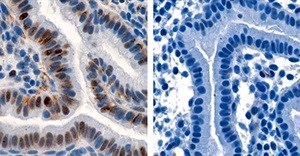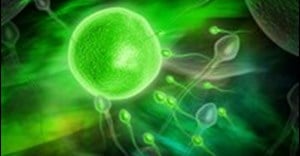More and more women experiencing frequent miscarriages are learning of natural killer (NK) cells as the potential culprits behind their inability to achieve an ongoing pregnancy. And while killer cells are in fact our protectors against various infections and diseases such as cancer, they are being pinpointed in medical circles as a potential cause of infertility and recurrent pregnancy loss with increasing regularity.
Natural born killers
While their name sounds ominous, natural killer cells derive their name from the fact that they search for and destroy harmful cells. Once NK cells locate unwanted cells, they bind to the invaders and then produce a cytotoxic chemical to destroy them. Used in chemotherapy drugs, this chemical is known as tumour necrosis factor (TNF) and when excreted, creates holes in the membrane of the enemy cell. As a result of these openings, fluid leaks in and the invader ultimately bursts.
The pregnancy connection
"Early pregnancy sees a dramatic increase in uterine natural killer cells. This occurs as a result of the close interaction between the endocrine system (a system of glands that secrete hormones directly into the blood stream to regulate the body) and the immune system, particularly during implantation and the maintenance of pregnancy. A good example of the communication between these two systems is at the endometrium, which is the lining of the uterus. Here, under the influence of sex steroids, the NK cells multiply with rapidity," says leading fertility clinic, Vitalab's Dr Merwyn Jacobson.
How natural killer cells may cause miscarriages
"While the role of these natural killer cells is not completely clear, they are believed to promote placental and trophoblastic (cells surrounding the blastocyst which provides nutrients to the embryo) growth. In some women, the natural immune system
response of the natural killer cells is to 'overreact', so to speak, because the embryo is viewed as an invader. In response, the NK cells increase in number in order to have more 'killing power'. They then attach to the embryo and destroy it, the same way they would any other harmful cell," adds Dr Jacobson.
It's believed that the women, in whom this phenomenon occurs, are likely to experience multiple miscarriages. It is, however, good to know that with the proper diagnosis and treatment, it is possible to enjoy a successful pregnancy and carry full-term.
The diagnosis
Dr Jacobson explains, "The diagnosis and treatments required to suppress NK cells are not a simple process. Some doctors and clinics suggest a blood test to measure the level of natural killer cells in your blood, however, these test only measure blood NK cells and not uterine NK cells. Therefore, there is no substantial evidence that suggests the number and activity of NK cells in the bloods can be related or linked to the number and activity of NK cells in the uterine. Because there is little supporting evidence, test and treatment options are in their infancy and it is unclear whether or not they are effective or not."
Treating over-active natural killer cells
Some of the treatment options include high-dose steroids, intravenous immunoglobulin (IVIg) and tumour necrosis factor-a (TNF) blocking agents. "It is important, however, to note that these treatment options are not approved for use in reproductive medicine and there is also little supporting evidence that suggests these treatment options are effective or beneficial in reproductive medicine," explains Dr Jacobson.
In reproductive cases, treatment usually takes the form of IVIg infusions, which are intravenous antibodies extracted from the blood of many donors. These antibodies are designed to suppress the immune system. "With all treatment options there are certain associated risks involved and you should be very clear on what is entailed before receiving the treatment. It is also important to keep in mind that there is no scientific explanation that advocates these options are beneficial in reproductive cases."
Dr Jacobson also points out that the tests are very inconsistent and may be an unreliable method for measuring NK cells and their activity levels. "These tests and treatments are in their infancy and there are uncertainties involved regarding when it is most beneficial to measure NK levels and their activity. By way of example, it may be that tests are done when the NK cells are inactive. This makes it very hard to measure and properly asses the levels of NK cells found in blood, making the test unreliable."
The natural killer cell debate
While research into NK cells is giving couples suffering from recurrent pregnancy loss (RPL) hope, it is still considered a debatable topic by many in the fertility health fraternity. "It is hard to dispute that NK cells can be elevated in women experiencing multiple miscarriages as numerous studies have proven that this is indeed true. With that said, there are several explanations for increased levels of natural killer cells in women with recurring difficulties with carrying full-term. Stress is one such example with some researchers speculating that a number of women tend to have an immune system that responds more readily to tension and anxiety," explains Dr Jacobson.
Perhaps the most important fact is that many gaps exist in the understanding that scientists have of the effect of NK cells on pregnancy. Furthermore, researchers have yet to uncover any compelling evidence that immune-suppressing therapy actually works to reduce miscarriage rates. For this reason, women suffering from recurring miscarriages should not pin all their hopes on the diagnosis and treatment of overactive natural killer cells.
"NK cells are indeed a debatable topic but with that said it is a truly viable option worthy of exploration by women with dreams of starting a family and struggling to carry full-term. Treatment has helped childless couples in the past and you too could benefit from expert advice and a treatment plan prepared by a fertility specialist," concludes Dr Jacobson.
















